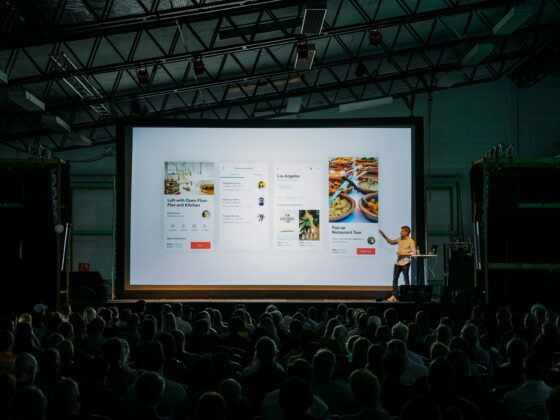
Technology no longer sits quietly in the background of hospitality — it is the business. And at the intersection of this transformation stands the modern CIO: no longer a systems custodian, but an architect of change, a translator of complexity, and increasingly, a strategist at the very core of decision-making.
This shift was tangible at the first-ever HFTP CIO Summit EMEA in Barcelona. What began as a gathering to discuss AI, data, and infrastructure, quickly evolved into something more profound: a shared realization that the traditional CIO archetype is dissolving. The role is being reimagined in real-time — fluid, cross-functional, and increasingly guest-facing.
We posed a deceptively simple question to attendees: “How is your role changing as technology evolves?” The answers were not only illuminating, they were revolutionary. It’s no longer about tools. It’s about timing. It’s no longer about systems. It’s about strategy. And it’s no longer about tech support. It’s about business leadership.
From Infrastructure to Influence
Andrew Evers of Rocco Forte Hotels captured the essence of this shift: “We’re no longer just maintaining networks — we’re shaping the future of the guest experience.” In luxury hospitality, where meaning is often crafted through nuance, the convergence of guest service and technology is no longer theoretical — it’s operational. Evers calls it “hand-thought” service: curated experiences delivered by humans, but enhanced by intelligent systems.

At Watergate Bay Hotel, Judi Blakeburn sees AI not as a futuristic tool, but as a present-day necessity. “AI isn’t a luxury — it’s a necessity to protect our margins and help our teams do more with less,” she explained. With labour constrained and expectations rising, she’s deploying AI not as a replacement for human effort, but as an amplifier — particularly across marketing, HR, and legal. In her words: “AI empowers people. It helps us do more, better, with less friction.”
Operators or Orchestrators?
What emerged in Barcelona was not simply a redefinition of responsibilities, but a reprogramming of mindset. CIOs are no longer operators. They’re orchestrators.
Mark Gage of Tanzerra Resorts, who rose through the ranks from bellman to executive director, is embedding operational empathy into his tech teams. “If you’ve never worked a front desk on a bad day, you won’t understand IT priorities in hospitality,” he said. His mission is to make IT think like operations — to reframe technical issues through the eyes of the guest.
Leon Smallbone of Firmdale Hotels sees a growing decentralization of innovation. Departments are no longer passive recipients of technology — they’re active participants. “Every department is becoming its own tech expert — our job is to enable, not dictate.” This empowerment model is shifting IT from gatekeeper to guide, from rule-setter to collaborator.
And Fergus Boyd — advisor, former CIO, and now strategic consigliere to startups and boards — doesn’t mince words. “Running servers is boring. Real impact comes from connecting tech to customers and cash flow.” He advocates for more CIOs to move into roles where they can shape commercial strategy, not just digital execution. His prediction? That robotic process automation (RPA), not generative AI, will have the most practical impact in the year ahead. “While AI steals headlines, RPA gets things done.”
AI: Beyond the Buzzwords
It’s easy to get lost in the glamour of AI, but many CIOs at the summit cut through the noise.
Mustafa Gokcen of Cheval Collection is clear: the hype around guest-facing AI obscures its true utility. “The real power of AI lies in the back office,” he says. Gokcen is focused on automation that frees up time for financial analysis and revenue strategy — not chatbots, but business intelligence.
Yet he points to a serious bottleneck: integration. With over a hundred platforms under management, the challenge isn’t acquiring data, but consolidating it into a single source of truth. “Innovation without integration is just noise. To build intelligence, we first need coherence.”
Marco Correia of Mercan Properties takes this one step further with a practical — and frankly brilliant — application: AI for housekeeping inspections. “Imagine filming a room and instantly knowing what’s missing. That’s the kind of AI that changes operations.” It’s real, it’s measurable, and it’s redefining quality control. But, as Correia reminds us, regulation looms large. Especially in Europe, where profiling guests with AI touches legal and ethical boundaries. The new CIO must be fluent not only in tech, but in compliance.
Data, Control, and the New Tech Stack
This new generation of tech leaders is asserting control — not just over infrastructure, but over the architecture of experience.
At Belmond, Tiago Alves and Daniel Gonzalez have built their own booking engine to circumvent the limitations of commercial platforms. “We built our own booking engine to take full control — like Apple, but for hospitality.” They now manage the full stack — from PMS integration to API layers — creating an ecosystem they can shape, secure, and scale.
OKU Hotels, a young brand with ambitious goals, is placing its bets on cybersecurity. VP of Technology Alejandro Vidales is building a foundational platform that integrates fraud detection, threat response, and data loss prevention in one system. “Security isn’t a back-office concern anymore. It’s a business enabler. In hospitality, trust is currency.”
Perhaps the most paradigm-shifting insight came anonymously from a major international group: “The PMS is no longer the center—CRM is the new brain of the hotel tech stack.” This thesis redefines where value is created—not in room assignments but in guest profiles, not in check-ins but in behavioral insights. CRM is no longer a marketing tool—it’s the axis of personalization, loyalty, and lifetime value.
The Bottom Line
The CIO of yesterday kept the lights on. The CIO of today illuminates the path forward.
The discussions in Barcelona weren’t speculative. They were grounded, urgent, and unmistakably transformative. Hospitality has never needed CIOs more — but it has never needed this kind of CIO more than it does now: one who can lead with vision, listen like an operator, and execute like an engineer.
CLICK HERE TO VIEW THE RELATED WORLD PANEL VIEWPOINT
Next stop: HITEC 2025. Not just another conference — the next checkpoint in an industry being rewritten by its own technologists.







